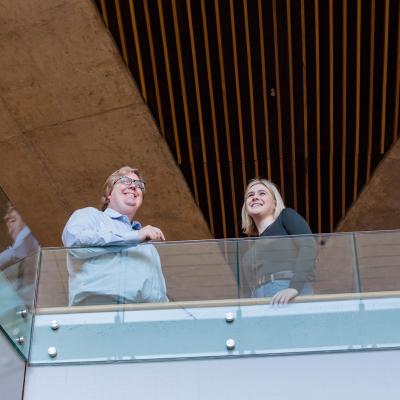Have today's leaders evolved with the times or are they actually reflections of the past? By studying leaders from 2000 years ago, we can learn whether our modern leaders are all that modern.
“Study history, study history. In history lies all the secrets of statecraft.”
According to Winston Churchill, there is much we can learn about politics by turning to the pages of history.
Why do we study history?
The past can show us how historical leaders and political forces shaped the world. Studying ancient emperors and powerful dynasties can teach us about courage, conflict and community. Some ruled with aggression, while others led with empathy and kindness. Were the leaders from centuries past all that different from politicians today?
Professor Alastair Blanshard, the Paul Eliadis Chair of Classics and Ancient History at UQ, explains how UQ is teaching the next generation of leaders to own the unknowns of the future with lessons from the past.
“We have much to learn about leadership from biographies of ancient rulers," he says.
"Leaders like Augustus, who ended civil wars and ushered in an age of peace and prosperity. Compare this to Nero, who ruled without the interests of the people in mind – forever damned by history as the man who fiddled while Rome burned.”
“Through these studies of character, we can see how people, economies and entire countries are affected by a leader's actions.”

Why studying ancient history can make better modern leaders
According to Alastair, the reason why these ancient stories come alive for us is because we can see ourselves in them. These stories inspire us and warn us about the darkest side of human nature.
By turning to the pages of these centuries-old stories, we can develop an understanding of the social and historical forces that have contributed to the evolving creation of politics as we know it today.
“From Homer’s Iliad, to Dante’s Inferno, to works of Hobbes, Shakespeare, Virginia Woolf, Jane Austen and Freud – these are the works that helped shape the world that we see around us,” says Alastair.
“Importantly, they’re also the works that will also help us face the challenges of the future. From global pandemics and climate change, to the reasons why states fall apart."
"These are reservoirs of knowledge, important texts for us to learn from. Knowing these works of the past will help us step confidently into the future.”
One of the main reasons the great books of the past are so relevant in modern times is because the human condition hasn’t changed all that much. This is why politicians today aren’t all that different from the leaders of Ancient Rome – because leaders are facing strikingly similar issues now as they did back in 27 BC.
“Emotions are the great drivers of humanity and they remain constant throughout the centuries,” Alastair says.
“It's why history repeats itself. Human nature hasn't changed, despite all the progress we've made.”
By studying the ancient leaders, we can find answers to significant and urgent social problems facing society today.
“I see students turning to ancient texts in order to challenge and change the future, and that is a powerful thing,” says Alastair.
“To learn from the past and shape future possibilities – the chance to do better, and be better than before.”
Want to learn how history has shaped modern politics? Discover more by studying advanced humanities at UQ.






